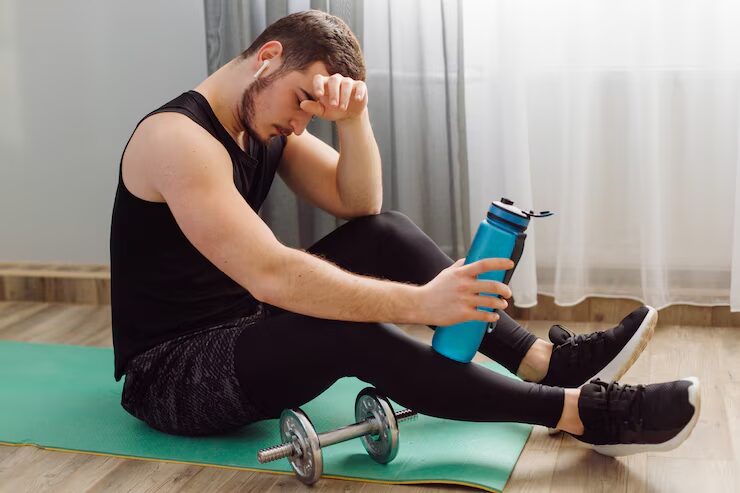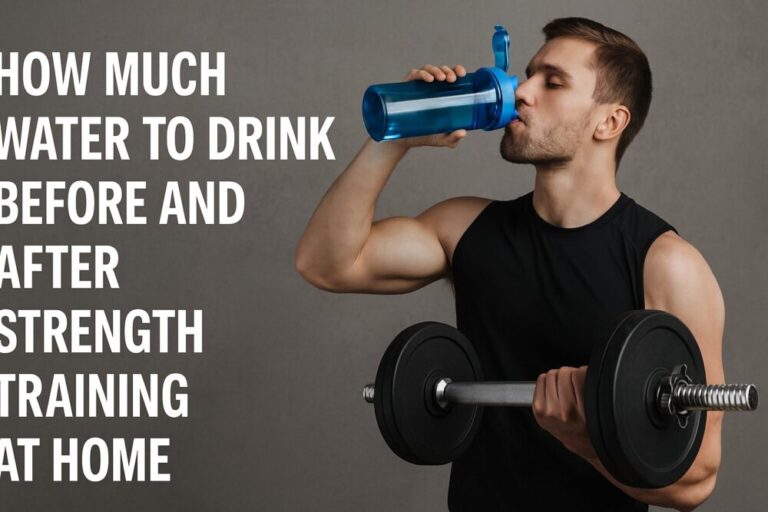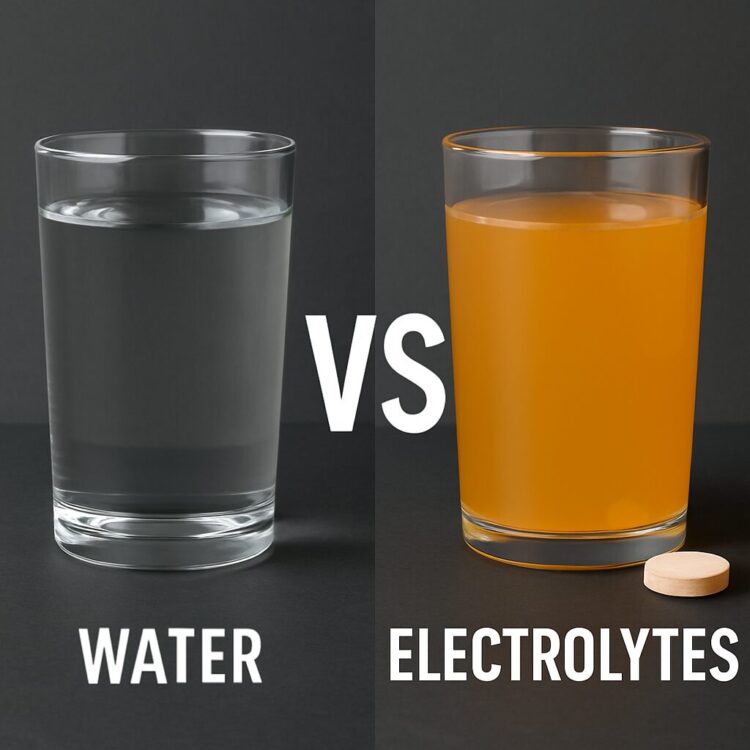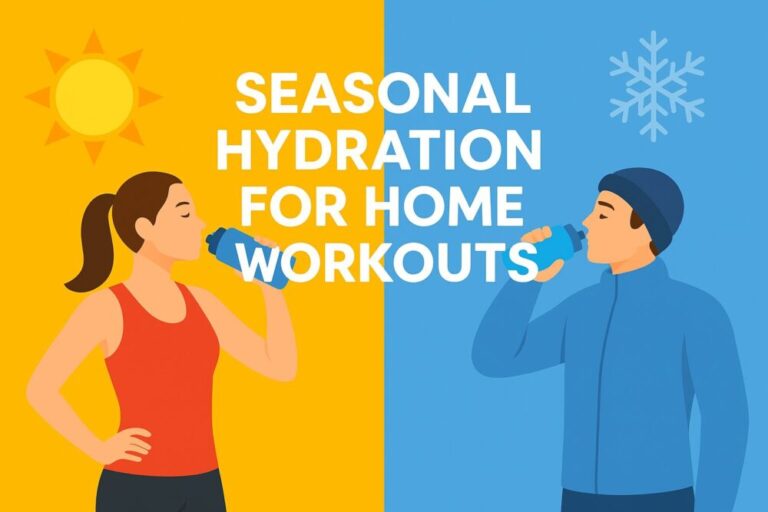Pre-Workout vs Post-Workout Hydration isn’t just a health debate. It’s crucial to the way your body recovers and performs. If you’re working out in your home or taking a brief daily workout, knowing the best time and method to hydrate will be a significant difference in the level of energy, endurance and recovery of muscles.
This guide will explain all you must be aware of about post- and pre-workout water hydration, and the reasons why a tailored approach is more effective than the guesswork.
Pre-Workout vs Post-Workout Hydration: Why Hydration Timing Matters
A proper hydration regimen is crucial to maintain muscle health as well as cardiovascular performance and thermoregulation. A slight deficiency in hydration even as 1% of your body weight can hinder fitness and raise the chance of dizziness, cramps, and fatigue. Based on the National Institutes of Health, water loss greater than 2 percent of the body weight while exercising could affect strength, endurance and cognitive performance. Source.
This is where the timing factor is important. Hydrating prior to your workout helps you get started strong, and after your workout, water intake assists in replenishing the loss of fluids and aid in recovery.
Pre-Workout Hydration: How Much and When?
Hydration before your workout helps your body prepare to take on physical strain. Here’s how you can do it correctly:
- Drink 500–600 milliliters (16-20, 1 oz) of water between 2 and 3 hours prior to exercising.
- Start with 200-300mL (7-10 Oz) 10–20 minutes prior to starting.
This technique helps to maintain your core temperature and helps ensure sufficient circulation during your training. If you’re working out at your home in a warm space or HIIT, pre-hydration is even more crucial.
Are you curious about exactly the amount of water your body requires prior to your workout? Make use of the water intake calculator to receive an individual recommendation based on your body weight, exercise type and your conditions.
Post-Workout Hydration: Why It’s Just as Important
Following exercise, post-workout hydration is crucial for recovery. Electrolytes and water are lost in sweat. If they’re not replenished, and you feel tired, you might suffer from muscle soreness, fatigue and slow recovery.
Here’s how you can rehydrate effectively:
- Drink 500-700mL (16-24 OZ) of water within 30–60 minutes following your workout.
- Drink plenty of fluids over the next couple of hours until your urine turns pale yellow.
Based on the Cleveland Clinic, drinking water after exercise aids in maintaining muscles’ function, lessen soreness, and help in recovering from any moderate activity sources.
For more intense or sweaty workouts, you may want to consider adding electrolytes. However, for a typical exercise routine at home that is less than 60 minutes, water on its own is typically enough.
Pre vs Post: Which One Should You Prioritize?
Pre-workout hydration vs post-workout should not be a matter of choice, as they both serve distinct but equally important functions.
| Type | Purpose | When to Hydrate |
|---|---|---|
| Pre-workout | Enhances performance and prevents premature fatigue | 3 hours and 20 minutes prior to |
| Post-workout | Helps recover, restores lost minerals and fluids | Within 30–60 mins after |
To maximize your results, you should include both of these in your daily hydration regimen. The absence of either can affect your performance — whether during your workout or afterwards.
Sample Hydration Timeline for Home Workouts
| Time | Action |
|---|---|
| 2 hours prior to the exercise | Drink 500–600 milliliters of (16-20 1 oz) water |
| 10–20 minutes prior to training | Drink 200–300 milliliters of (7-10 8 oz) water |
| During a workout | Drink water after a workout that lasts more than 30 minutes |
| 30–60 minutes following workout | Drink 500-700mL of (16-24 OZ) water |
To prevent over- or under-hydration, it is recommended that you estimate your hydration requirements according to your body’s measurements and exercise routine.
Beware of the Mistakes You Make
When it comes to decide for the Pre-Workout vs Post-Workout Hydration, Many fitness enthusiasts make simple hydration mistakes that affect their progress:
- Waiting until you’re thirsty – thirst is a delayed signal; by then you’re already dehydrated.
- Over-hydrating in one go – chugging large amounts of water at once can cause bloating and reduce absorption.
- Neglecting hydration on rest days – your body still needs fluids for muscle repair and metabolic function.
- Skipping post-workout fluids – rehydration is essential, even for light home workouts.
Why Personalized Hydration Matters
Every person is unique. The amount of sweat, weight the intensity of your workout, even the temperature of your indoor space influence your water requirements. A one-size-fits all approach doesn’t work.
To stay away from guesswork and start drinking more effectively, make use of the Hydration Calculator created specifically for exercises at home.
Need more information? Want more context? Read How Much Water Should You Drink When Working Out at Home and The Ultimate Guide to Hydration for Home Fitness Enthusiasts to dive deeper into building a smarter hydration plan.
Conclusion
Pre-Workout vs Post-Workout Hydration debate isn’t about just drinking more fluids, it is about drinking the proper quantity at the appropriate moment. Knowing the difference between pre-workout vs post-workout water hydration will allow you to improve your performance during workouts, increase recuperation, and be more comfortable overall.
Make hydration a habit instead of as an incidental thought. Do you want to customize your water intake? Use our water intake Calculator and determine your exact daily goals.







